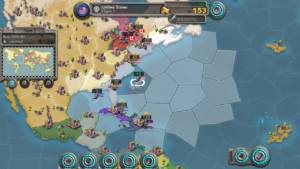Many universities are using various digital platforms to continue education and some are going out of their way to host online events such as webinars, talk shows and faculty training programmes. One such institution that has not let the academic spirits get dampened by the pandemic is Karnavati University (KU). For the last few months, the faculty and students at Karnavati University (KU) have been engaged in remote teaching and learning methods.
Karnavati University
“Last semester, the coronavirus pandemic threw a major wrench on many carefully laid out academic plans by colleges and universities around the world. Despite the disruption caused by the pandemic, Karnavati University has successfully completed the academic year 2019-20 on a virtual platform for its five schools including Law, Business, Design, Liberal Arts & Mass Communication as well as the Dental College. For the new semester that started in July, we have made arrangements for the faculty members and students to make the most out of asynchronous platforms such as Blackboard, COLLPOLL and customized learning along with synchronous platforms such as Google Meet,” said Dr. Deepak Shishoo, Provost, KU.
United World Institute of Design
Faculty members who have had no previous experience in online teaching now seem to be enjoying the process. Srotaswini Bhowmick, Assistant Professor at the Unitedworld School of Liberal Arts & Mass Communication, said, “We are constantly adjusting and catering to our students’ interests and our bandwidth frenzies. It is a time where we need to be extremely empathetic in terms of mentoring young minds. Also, on account of this online pedagogy, we are revising elements in the curriculum to make it relevant and deliverable. We are trying to adapt the virtues of flexibility and innovation at the face of unanticipated challenges.”
Karnavati University has recently launched two new specializations – Game Design and Intimate Wear/Lingerie Design for its School of Design. “A rapid growth is projected in the global market for the Intimate Wear & Lingerie sector owing to increased consumer demand due to changes in demographic, lifestyle, rise in awareness of hygiene and customization of the products. Rise in internet penetration, tech-savvy consumers and growth in e-commerce markets has given a big boost to this growth, leading to an increased requirement of trained designers. The Intimate wear and Lingerie module offered at the Unitedworld Institute of Design is an excellent first stage for a career in the intimate apparel industry to develop your potential towards the demand for specialized design talent,” says Taruna Vasu, Associate Director & HOD, School of Fashion Design at KU.
Vinay Sachdev, a second year student at the Unitedworld School of Law is looking forward to the next semester online. “The faculty and management at KU has been very supportive during the pandemic. We had a very positive experience with the online classes and webinars during lockdown. The process of learning has been very enjoyable even in such uncertain times.”
Besides delivering classes online, the university has also successfully placed its students for internships and is currently in the process of winding up its final placements.
Aanshi Garg, a third semester PGDM student from the Unitedworld School of Business, recently completed her internship online. “The Career Support Division at KU provided us with many in-house projects from companies and also guided us in completing our internships online. Further, the faculty helped us by providing course material, conducting webinars, video lectures, online certification programmes and huge moral support.”
Sharing the university’s plan on introducing a blended mode of education, Dr. Shishoo said, “Karnavati University believes in turning obstacles into opportunities – and the university’s outlook is no different even in the current crisis. We plan to integrate online learning into the existing academic leadership structures and processes once we reopen. When the students and faculty return to campuses, we will preserve some of the virtual solutions that saved us during the lockdown forced upon us by the virus. The university will be allowing only 50% physical attendance in the open laboratories and workshops with uncompromising focus on social distancing.”
Source: NewsVoir
















